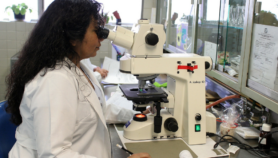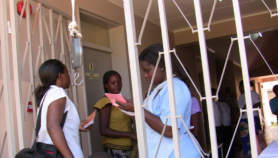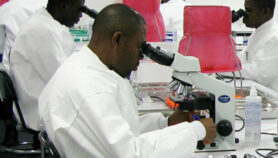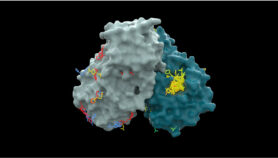By: Ochieng’ Ogodo
Send to a friend
The details you provide on this page will not be used to send unsolicited email, and will not be sold to a 3rd party. See privacy policy.
Many countries — especially in Africa — are still using outdated and less effective treatment methods for tuberculosis (TB), say the authors of a paper published in The Lancet last week (23 August).
Fighting the worldwide TB epidemic and getting advances in treatment to those most at risk requires a combination of endeavour, resources and political will, they say.
One of the authors, Gary Maartens, of the University of Cape Town Medical School, South Africa, told SciDev.Net that policymakers "need to foster research in their countries", not only to build local capacity but to "bring their countries closer to new developments so that they can be implemented if shown to be effective".
But, he warned, massive support, and partnerships between industry, academics and public health "is required for research into new diagnostics, drugs and vaccines".
Maartens told SciDev.Net that there is a "healthy pipeline" of new drugs and vaccines, but "testing these in large clinical trials is expensive and the funding agencies need to commit more resources".
The authors of the paper also highlight the need to address the catastrophic HIV-driven epidemic in sub-Saharan Africa.
A researcher at the Kenya Medical Research Institute and TB specialist, Jeremiah Chakaya, told SciDev.Net that research into new diagnostics, drugs and vaccines — especially for the developing world — has been long neglected.
"Policymakers and pharmaceutical companies should rethink their positions and give political and financial support for new discoveries in methods for treating TB," Chakaya said.
"We are forced to use outdated methods of curing TB because of the unavailability of resources for both research activities, acquisition of new technologies and production of new drugs," he said.
Currently, because of inadequate diagnostic tests, some patients experience dangerous delays in starting treatment, he added.
Reference: The Lancet doi 10.1016/S0140-6736(07)61262-8













